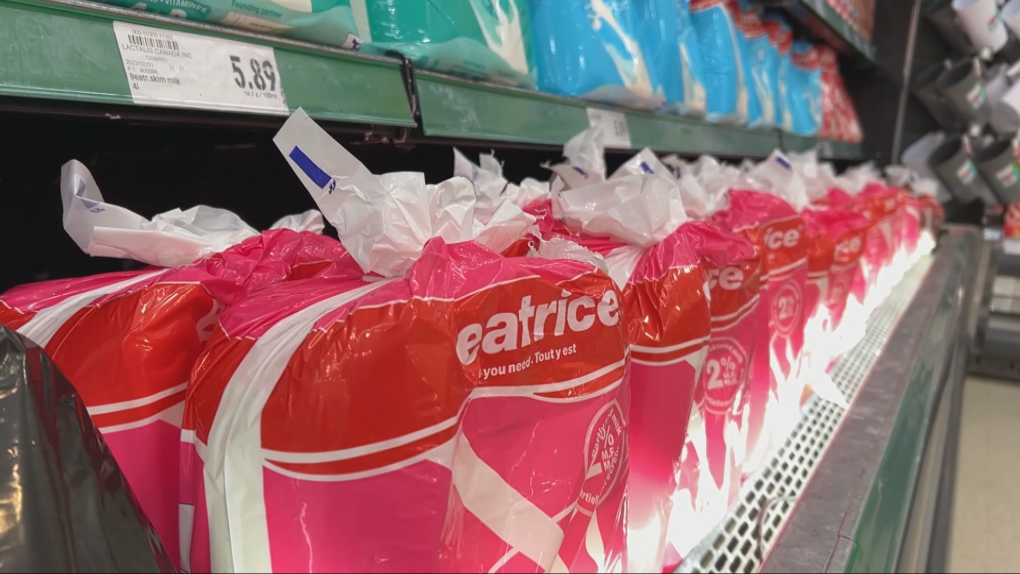“Consumption of milk per capita has gone down every year over the last 30 years,” says Sylvain Charlebois, director of the Agri-Food Analytics Lab at Dalhousie University. “Actually, it’s gone down by more than 20 per cent since 2015.”
While bagged milk is often cited as a unique Canadianism, it’s actually not sold west of Ontario. Those who prefer it, however, say it’s more cost efficient and some even believe it tastes better.



We have glass bottle milk in vancouver area. $1-$2 deposit on the bottle, good incentive to return it when you get your new bottle.
I don’t know if I can sarcastically say ‘sounds like commie shit’ any harder before it would sound like I’m actually against it
That does sound fantastic. How’s the shelf(/fridge) life of the milk?
It seemed on par with jugged/bagged milk as they were pasturizing it. It tasted much better though more like the milk I remember from the UK as a kid. Not sure if they feed differently or just smaller batches that get to market sooner.
I would guess it’s better feed; more grass, less grain
Used to live across the border in Southern BC. Had access to a glass-bottled, “cream-top” (non-homogenized) milk from a local dairy. Fridge life was in-line with regular jugs. Plus, it tasted better and was likely healthier (homogenized milk contains fat globules small enough to directly absorb into the bloodstream without digestion, possibly contributing to heart disease).
Do you have a source for the fat molecules bit? That is a wild assertion, crazy if true. But I’m pretty sure fat doesn’t work like that.
Have been looking for a reputable source on that - busy on work projects. Might be something that has been shown to be bunk at this point. I did, however, find a few recent interesting papers characterizing the physical structural changes that occur with homogenization. IIRC, the average globule size gets reduced to ~1μm in diameter.
Okay so it’s false information, that’s what you’re saying.
I would say that it’s currently unverified and potentially bunk. Have updated the comment to note this and will do so again if I’m not able to find supporting (non-opinion) academic papers. Thank you for asking for evidence and making me reexamine something that I “know”.
I was thinking the same thing. Fat isn’t water (read:blood) soluble, and I have a hard time imagining any significant amount emulsing into your blood stream
Indeed. It is worth noting that fat globules in dairy aren’t JUST lipid. They are really a mixture of lipids, glycolipids, proteins, and other stuff. The glycolipids and proteins have polar and non-polar parts and organize into a membrane around the non-polar (hydrophobic) lipid fraction, keeping it from precipitating out of solution. Effectively, milk fat globules come with their own emulsifiers.